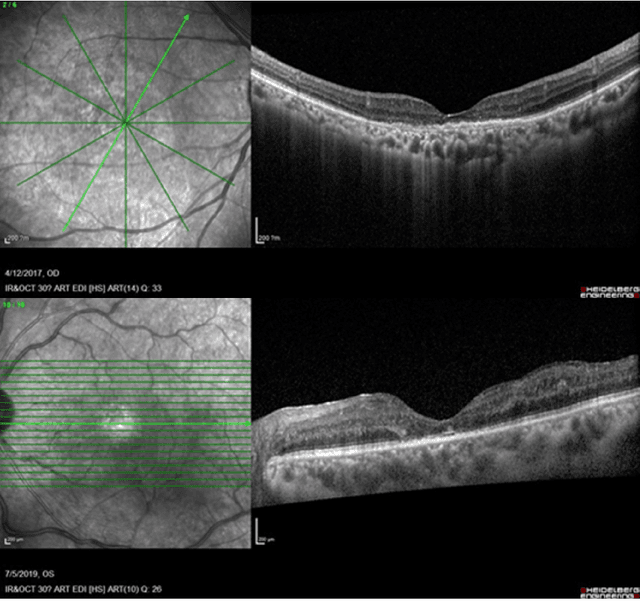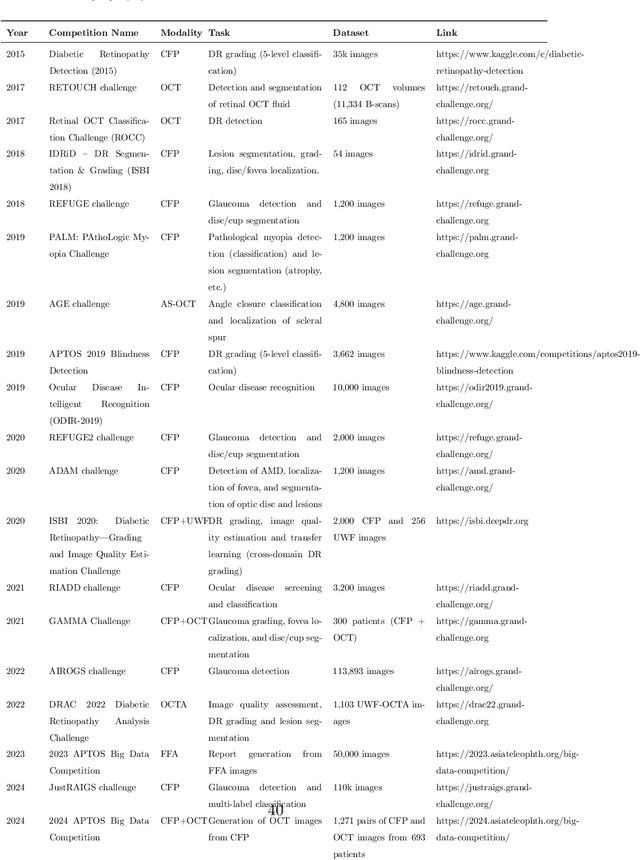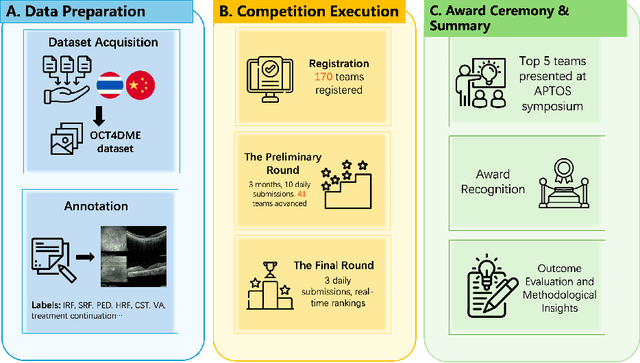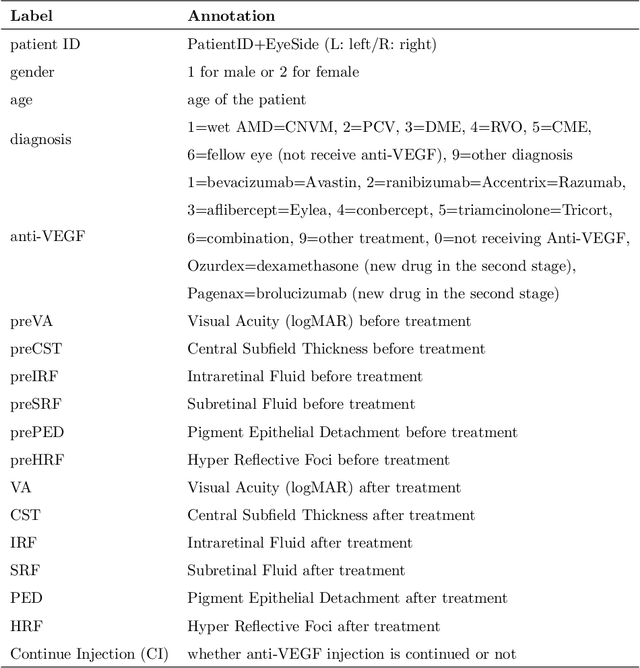Yinwen Li
Predicting Diabetic Macular Edema Treatment Responses Using OCT: Dataset and Methods of APTOS Competition
May 09, 2025



Abstract:Diabetic macular edema (DME) significantly contributes to visual impairment in diabetic patients. Treatment responses to intravitreal therapies vary, highlighting the need for patient stratification to predict therapeutic benefits and enable personalized strategies. To our knowledge, this study is the first to explore pre-treatment stratification for predicting DME treatment responses. To advance this research, we organized the 2nd Asia-Pacific Tele-Ophthalmology Society (APTOS) Big Data Competition in 2021. The competition focused on improving predictive accuracy for anti-VEGF therapy responses using ophthalmic OCT images. We provided a dataset containing tens of thousands of OCT images from 2,000 patients with labels across four sub-tasks. This paper details the competition's structure, dataset, leading methods, and evaluation metrics. The competition attracted strong scientific community participation, with 170 teams initially registering and 41 reaching the final round. The top-performing team achieved an AUC of 80.06%, highlighting the potential of AI in personalized DME treatment and clinical decision-making.
EyeGPT: Ophthalmic Assistant with Large Language Models
Feb 29, 2024



Abstract:Artificial intelligence (AI) has gained significant attention in healthcare consultation due to its potential to improve clinical workflow and enhance medical communication. However, owing to the complex nature of medical information, large language models (LLM) trained with general world knowledge might not possess the capability to tackle medical-related tasks at an expert level. Here, we introduce EyeGPT, a specialized LLM designed specifically for ophthalmology, using three optimization strategies including role-playing, finetuning, and retrieval-augmented generation. In particular, we proposed a comprehensive evaluation framework that encompasses a diverse dataset, covering various subspecialties of ophthalmology, different users, and diverse inquiry intents. Moreover, we considered multiple evaluation metrics, including accuracy, understandability, trustworthiness, empathy, and the proportion of hallucinations. By assessing the performance of different EyeGPT variants, we identify the most effective one, which exhibits comparable levels of understandability, trustworthiness, and empathy to human ophthalmologists (all Ps>0.05). Overall, ur study provides valuable insights for future research, facilitating comprehensive comparisons and evaluations of different strategies for developing specialized LLMs in ophthalmology. The potential benefits include enhancing the patient experience in eye care and optimizing ophthalmologists' services.
 Add to Chrome
Add to Chrome Add to Firefox
Add to Firefox Add to Edge
Add to Edge